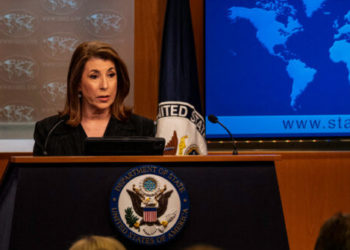Elon Musk’s artificial intelligence company xAI, which runs the Grok chatbot, is facing a legal challenge led by the NAACP over air pollution from its supercomputer facility in Memphis.
xAI’s South Memphis data center, near predominantly Black neighborhoods, has been operating natural-gas-burning turbines without the proper permits, the NAACP alleged in a notice of an intent to sue filed on Tuesday. Those turbines were sending noxious emissions toward local homes, said Derrick Johnson, president of the NAACP.
“We cannot afford to normalize this kind of environmental injustice, where billion-dollar companies set up polluting operations in Black neighborhoods without any permits and think they’ll get away with it,” he said.
In a statement, xAI said that it took its environmental commitments seriously, as well as its responsibility to the local community. “The temporary power generation units are operating in compliance with all applicable laws,” the company statement said.
The data center, part of Mr. Musk’s xAI artificial intelligence business, began running last year in a former manufacturing plant. It houses a supercomputer that Mr. Musk, the world’s richest man, has said would be the world’s largest supercomputer.
Before beginning operations, the company rolled in flatbed trucks loaded with gas-powered turbines to help meet its electricity needs, which rival those of 100,000 homes. The Southern Environmental Law Center, a legal nonprofit organization that is representing the NAACP, said aerial images from March showed 35 gas turbines at the site, and that the turbines were emitting significant amounts of heat.
Local officials had suggested that an exemption allowed xAI to temporarily operate the turbines without permits. The Southern Environmental Law Center alleged that there is no such exemption.
Pollution from gas turbines can form smog and contains hazardous chemicals like formaldehyde and benzene, linked to asthma, respiratory diseases and other health problems.
KeShaun Pearson, director of the Memphis Community Against Pollution, a group that has led the local opposition to the data center, said xAI was bringing pollution to predominantly Black communities disproportionately burdened with emissions from an oil refinery, a steel mill and chemical plants.
The Southern Environmental Law Center pointed to studies showing that Boxtown, a neighborhood founded by freed slaves in the 1860s that is closest to the xAI data center, faces a cancer risk four times the national average.
“It’s environmental racism,” Mr. Pearson said. “They came and built what’s essentially a power plant in less than 12 months, with no oversight and no approval.”
xAI has said it intends to equip the turbines with technology to reduce emissions and has said the project is boosting the local economy by paying taxes and creating jobs. NAACP and the Southern Environmental Law Center have said that regulations required xAI to obtain local and federal permits before operating its gas turbines.
The 60-day notice of an intent to sue is a prerequisite to filing a lawsuit under the Clean Air Act, which regulates air pollution. The suit would challenge xAI and its permit application, which is now under consideration by Shelby County.
Mr. Musk started xAI as a competitor to ChatGPT, the chatbot powered by OpenAI. Mr. Musk helped found OpenAI, then left in 2018 after disagreements with other co-founders.
xAI’s move into Memphis reflects the intensifying race by technology companies to bring more data centers online. The tech industry is leading a surge in electricity demand that is making it more difficult for communities and electric utilities to meet their goals for reducing greenhouse gas emissions, because fossil fuels are being burned to generate electricity.
Tennessee State Representative Justin J. Pearson, who represents nearby neighborhoods and who previously fought plans to build an oil pipeline through the area, said Mr. Musk in particular should be committed to using cleaner energy. “Didn’t he build his whole career on battery storage and electric vehicles?” Mr. Pearson said.
Hiroko Tabuchi covers pollution and the environment for The Times. She has been a journalist for more than 20 years in Tokyo and New York.
The post Elon Musk’s AI Company Faces Lawsuit Over Gas-Burning Turbines appeared first on New York Times.




